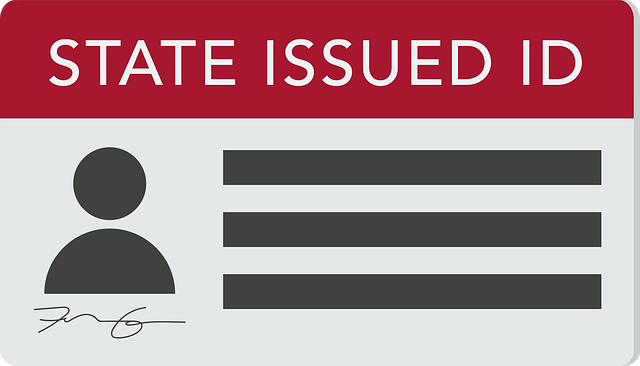The transportation industry’s success hinges on meticulous attention to detail, from adhering to Dep…….
Category: Truck Identification Number
Truck Identification Number: A Critical Component in Global Logistics
The advent of the Truck Identification Number (TIN) has revolutionized the way cargo is managed, tracked, and secured across borders. This article delves into the intricacies of TINs, their global impact, economic implications, technological advancements, policy frameworks, and the challenges they face. By the end of this exploration, readers will have a comprehensive understanding of TINs and their significance in modern logistics.
Understanding Truck Identification Number (TIN)
A Truck Identification Number is a unique numerical or alphanumeric code assigned to a commercial vehicle, typically a truck, for identification purposes. This identifier facilitates the tracking of goods transported by these vehicles, enhancing security and efficiency in supply chains. The core components of a TIN usually include a country code, fleet identifier, and a unique number for each vehicle within that fleet. Historically, the concept of a TIN emerged as a response to the need for standardized cargo tracking systems capable of handling international trade complexities.
Global Impact and Trends
The influence of TINs is far-reaching, impacting trade facilitation, security measures, and operational efficiency across different regions. Key trends indicate a growing reliance on digital supply chains, where TINs play a pivotal role in data exchange between logistics entities. In Latin America, for instance, the implementation of TINs has been instrumental in reducing cargo theft and streamlining border crossings. Conversely, in Africa, the adoption of TINs is still nascent but rapidly evolving, with countries like Kenya and South Africa leading the charge.
Economic Considerations
TINs have significant economic implications. They facilitate market dynamics by enabling faster clearance of goods, reducing operational costs, and ensuring compliance with trade regulations. Investment patterns in logistics technology are heavily influenced by the adoption rates of TINs, as they are seen as a critical enabler for efficient supply chains. Countries with high TIN usage tend to experience improved trade balances and enhanced competitiveness in the global market.
Technological Advancements
The evolution of TINs has been propelled by technological advancements, particularly in the realms of RFID tracking, blockchain for data integrity, and AI-driven analytics to optimize routing and predict maintenance needs. These technologies enhance the capabilities of TINs, making them more robust tools for logistics management. The future holds promise for even more sophisticated applications, such as autonomous vehicles integrated with advanced TIN systems.
Policy and Regulation
The governance of TINs is shaped by a multitude of policies and regulations. International bodies like the World Customs Organization (WCO) have established frameworks that encourage the adoption of standardized identification systems, such as the Data Model for Goods. National governments have enacted legislation to mandate or incentivize the use of TINs, ensuring compliance with international trade standards. These regulations are critical in guiding the development and implementation of TIN systems.
Challenges and Criticisms
Despite their benefits, TINs face several challenges and criticisms. Issues such as interoperability between different countries’ systems, data privacy concerns, and cybersecurity threats are at the forefront. Additionally, the high costs associated with implementing and maintaining TIN systems can be prohibitive for smaller operators. Strategies to address these issues include fostering international cooperation, investing in secure technology infrastructure, and creating accessible financial aid programs for small-scale transporters.
Case Studies
Several case studies exemplify the successful application of TINs. For instance, China’s use of TINs has significantly improved its customs operations, leading to a reduction in processing times and a decrease in smuggling activities. In the United States, the Federal Motor Carrier Safety Administration (FMCSA) utilizes TINs to enhance road safety and compliance with regulations. These success stories underscore the potential benefits of TIN systems when effectively implemented.
Future Prospects
Looking ahead, the role of TINs is set to expand as global trade continues to evolve. Potential growth areas include greater integration with IoT devices for real-time tracking and predictive analytics. Emerging trends suggest a move towards more sustainable logistics practices, where TINs can play a part in optimizing routes and reducing emissions. Strategic considerations for stakeholders involve investing in technology that supports the integration of TINs into broader supply chain solutions.
Conclusion
Truck Identification Numbers are a cornerstone of modern logistics, providing unparalleled insights into cargo movements and facilitating secure, efficient global trade. The discussion above has highlighted their multifaceted role, from enhancing economic systems to addressing technological and policy challenges. As the world becomes increasingly interconnected, the importance of TINs in ensuring the smooth operation of supply chains will only grow.
FAQ Section
-
What is a Truck Identification Number (TIN)? A TIN is a unique identifier for commercial vehicles that facilitates tracking and management of cargo in global supply chains.
-
Why are TINs important? TINs are crucial for enhancing security, reducing operational costs, ensuring compliance with trade regulations, and improving the efficiency of supply chains.
-
Which countries use TINs? Many countries worldwide use TINs, with varying degrees of adoption. Countries like China, Kenya, and South Africa have made significant strides in their implementation.
-
How do TINs contribute to economic development? By streamlining trade processes, TINs reduce costs and delays, thereby fostering economic growth and competitiveness on a global scale.
-
Are there any privacy concerns with TINs? Yes, as with any system that handles sensitive data, there are privacy concerns that must be addressed through robust data protection measures and adherence to regulations.
-
How can smaller transporters adopt TIN systems? Smaller operators may seek assistance from government programs designed to facilitate technology adoption or partner with larger entities to share the costs and benefits of implementing TINs.
-
What is the future of TINs in logistics? The future of TINs includes deeper integration with emerging technologies, broader adoption across the globe, and a role in promoting more sustainable and efficient logistics practices.
Efficient Truck Management: Streamlining Compliance and Safety
In the realm of heavy-duty trucking, adhering to Department of Transportation (DOT) regulations and…….
Digital Solutions Revolutionize Fleet Management and DOT Compliance
In today’s highly competitive transportation sector, efficient fleet management is paramount to stay…….
Vehicle History Matters: Digital Compliance for Safe Truck Management
In the fast-paced world of commercial trucking, every vehicle record holds a narrative—a tale of j…….
Precision Logistics, Data Tracking, & Tech-Driven Compliance: Revolutionizing Truck Registration
In today’s highly competitive transportation landscape, precision logistics isn’t just a desirable p…….
Streamlining Transportation: New Software Revolutionizes Fleet Management and Safety
The transportation industry’s success hinges on meticulous attention to detail, from adhering to Dep…….
Efficient Fleet Management: Streamlining DOT Compliance and Safety Through Software
In the realm of heavy-duty trucking, adherence to Department of Transportation (DOT) regulations and…….
Digital Fleet Management Revolutionizes Commercial Vehicle Compliance and Logistics
In the fast-paced world of transportation, staying ahead in the market demands a strategic approach…….
Efficient Fleet Management Software: Streamlining Commercial Vehicle Compliance
In today’s competitive transportation landscape, efficient fleet management is paramount. The abilit…….
Digital Revolution in Fleet Management: AI Compliance and Enhanced Safety
In today’s rapidly evolving transportation landscape, digital transformation is reshaping the way fl…….









